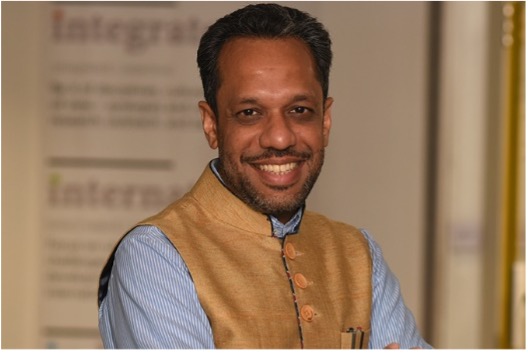The Road to UNFCCC COP 26: The View from India: Building a Climate Resilient Economy
After being postponed by a year due to the current COVID-19 pandemic, this years’ COP 26 UN Climate Change Conference will be hosted by the UK in partnership with Italy in the Scottish Event Campus (SEC) in Glasgow, UK. The event will take place from the 31st of October to the 12th of November 2021.
The conferences agenda is built on four key pillars:
- Secure global net zero by mid-century and keep 1.5 degrees within reach: Participating countries are asked to bring forth ambitious 2030 emissions reduction targets.
- Adapt to protect communities and natural habitats: Protect & restore ecosystems while building resilient defense infrastructures
- Mobilize finances: Developed countries should mobilize at least $100bn in climate finance by the end of the year.
- Work together to deliver: Governments, businesses, and civil society should collaborate.
In fact, climate change is widespread, rapid and intensifying, and some trends are now irreversible, at least during the current time frame. Human induced climate change is already affecting many weather and climate extremes in every region across the globe.
The webinar explores a series of vital questions including India’s approach to the climate change crisis, and more specifically, the agenda for discussion at COP26 in terms of India’s nationally determined contributions, mitigation efforts, and contribution to discussions on the matter of renewable energy, adaptation, climate change finance, loss and damage and implementation.
|
09h30 - 10h30 |
Panel of discussion Moderator : Ambassador Dr. Len Ishmael, Global Affairs Advisor, Brussels Diplomatic Academy, Senior Fellow, Policy Center for the New South Speaker : Dr. Arunabha Ghosh, Founder-CEO of the Council on Energy, Environment and Water (CEEW) |
-

Dr. Arunabha Ghosh, Founder-CEO of the Council on Energy, Environment and Water (CEEW)
Dr. Arunabha Ghosh is a public policy professional, adviser, author, columnist, and institution builder. As the founder-CEO of the Council on Energy, Environment and Water (CEEW), he has led CEEW to the top ranks as one of Asia's leading policy research institutions and among the world’s 20 best climate think-tanks. Arunabha advises governments, industry, civil society and international organizations, including India's Prime Minister's Office. He was actively involved in conceptualizing and designing the International Solar Alliance and is a founding board member of the Clean Energy Access Network. In 2015, he was invited by France, as a Personnalité d’Avenir, to advise on the COP21 climate negotiations; and advised extensively on HFC negotiations for the Kigali Amendment. In 2018, Dr Ghosh was nominated to the UN's Committee for Development Policy.
In 2020, the Government of India appointed him as the Co-Chair of the energy, environment and climate change track for India’s Science, Technology and Innovation Policy (STIP2020). He is the Co-Chair of the World Economic Forum’s Global Future Council on Clean Air, is a member of the international high-level panel of the Environment of Peace initiative, and serves on the Board of Directors of Climate Works Foundation. His monthly columns are widely read, he is regularly interviewed on national and international television, and has hosted or featured in documentaries on water, energy and climate change. His 2019 TED Talk on air quality (Mission 80-80-80) has crossed over 245,000 views. He is the co-author/editor of four books, dozens of papers, and is the lead author of Jobs, Growth and Sustainability: A New Social Contract for India’s Recovery (CEEW, 2020). He has previously worked at Princeton, Oxford, UNDP (New York), and WTO (Geneva), and has experience in 45 countries. He holds a D.Phil. from Oxford and topped Economics from St. Stephen’s College, Delhi.
-

Ambassador Dr. Len Ishmael, Global Affairs Advisor, Brussels Diplomatic Academy, Senior Fellow, Policy Center for the New South









